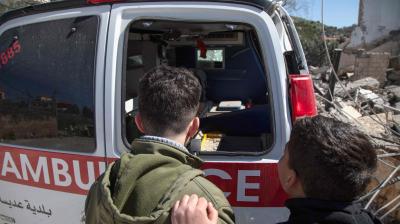Dhaka terror attack: Dead militants linked to attack identified
One of the three militants killed by Bangladeshi security forces on Saturday in connection with July’s Dhaka cafe attack came from a posh area of the city like some of the attackers and went to a pres
One of the three militants killed by Bangladeshi security forces on Saturday in connection with July’s Dhaka cafe attack came from a posh area of the city like some of the attackers and went to a prestigious foreign university, the police said on Sunday.
Towsif Hossain was from Dhaka’s leafy Dhanmondi neighbourhood and was missing since February. Like Nibras Islam, one of the five young and affluent cafe attackers who was killed after a 12-hour siege on July 2, Hossain had also attended the Kuala Lumpur campus of Australia’s prestigious Monash University, the head of the Dhaka police counterterrorism unit told reporters. The other militant killed on Saturday morning was Fazle Rabbi from the Jessore district northwest of Dhaka, who was missing from last April, counter-terrorism head Monirul Islam said. Rabbi’s family has fled, police said.
The cafe attack was claimed by Islamic State and killed 22 people, mostly foreigners. It alarmed security and political experts because of the profile of the perpetrators: educated youths from privileged backgrounds who had turned to radical Islamism only recently. Both Hossain and Rabbi were around 25, the police said.
The Malaysian police said in July that at least two of the militants behind the cafe attack had attended Monash, although they did not name them. The militants singled out non-Muslims and foreigners in the attack, killing Italians, Japanese, an American and an Indian. The identity of Tamim Ahmed Chowdhury, a 30-year-old Bangladeshi-born Canadian citizen suspected to be the mastermind of the cafe attack, was confirmed on Saturday itself. The militants were cornered on Saturday in a hideout on the outskirts of Dhaka, and having refused to surrender, were killed in the ensuing gun battle.
Analysts say Islamic State in April identified Chowdhury as its national commander in Bangladesh. Bangladesh Prime Minister Sheikh Hasina has said the police operation would uphold confidence and the image of her country, and came ahead of US secretary of state John Kerry’s visit to Dhaka on Monday.
He will meet Ms Hasina and hold talks with his counterpart Mahmood Ali “on a broad range of issues, including democracy, development, security and human rights”, a senior state department official said. Mr Kerry will then head to India. The police has denied the involvement of Islamic State in the cafe attack and instead blamed Jamaat-ul-Mujahideen Bangladesh, which has pledged allegiance to the group active in Syria and Iraq, for organising the assault.
“We’re hopeful we can now capture and eliminate other extremists including Zia,” assistant inspector general of police, Mohammad Moniruzz-aman, told AFP. The police suspects Zia, a former Army major whose full name is Syed Ziaul Haque, heads another local extremist group called Ansar al Islam, blamed for the machete murders of a dozen secular writers and two gay activists.

















